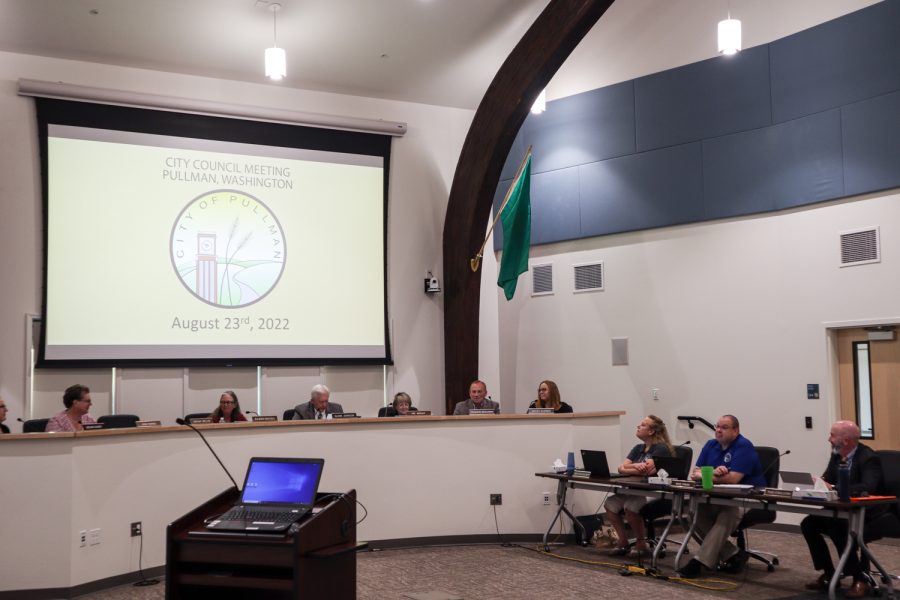Pullman Transit proposes new policy for young residents
City Council hears rail lines proposal, approves new property development
Councilmembers implied they would support the new Pullman Transit fare policy in their meeting at 7 p.m. on Aug. 23.
August 24, 2022
Pullman Transit announced it would like to institute an official fare policy that would allow riders under the age of 18 to use public transportation for free in order to qualify for a state grant of nearly half million dollars annually during the Pullman City Council meeting Tuesday.
Transit Manager Wayne Thompson told the council and Mayor Glenn Johnson that the state grant would allocate the transit service around $466,000 a year. Funding for the Transit Support Program was included in the budget passed by the Washington state legislature during the last legislative session.
If a motion to institute the fare policy is approved in the next council meeting, Thompson said it will take effect Oct. 1, and Pullman Transit would receive around $160,000 in 2022 through the state grant program.
“This policy formalizes an approach that seeks a balance between identifying and accepting there is a local responsibility to help fund the system, but also to keep it affordable by looking at those outside services,” Thompson said.
Pullman Transit has an operating budget of around $5 million, which is provided largely through federal and state grants, as well as utility taxes. Thompson said transportation services collected around $40,000 from fare boxes in 2019, the last full year of service and collection before the pandemic.
The announcement did not come as an official measure before the council, but several council members indicated they would support the measure when it comes time, including councilmember Ann Parks and Eileen Macoll. The fare change may be an official proposal that will be voted on by the council as soon as the next City Council meeting on Sept. 23.
“I feel very positive that this gets a certain demographic far younger than I am, because I came from a car generation. They will establish their life habits around public transit,” Macoll said. I think that in the long run [it] will benefit all of us, and this is a huge step in that direction.”
The council also listened to a proposal from the Pullman Civic Trust to convert unused rail lines in Pullman into public trails during the meeting.
Bobbie Ryder, president of the Pullman Civic Trust, led the presentation before the council and said the proposal would be an effort allowed by the National Trails Act of 1964, which allows public and private entities to convert unused rails as trails.
The proposal comes as a national movement to convert unused rail lines into trails for cyclists, equestrians and pedestrians continues to gain popularity. In Washington, a majority of the Palouse to Cascades Trail, the Olympic Discovery Trail and the Centennial Trail in Spokane were all railways at one point.
Ryder cited the potential economic benefits to the community, as well as the recreational benefits of the trail during the presentation. Visitors to the Centennial Trail in Spokane contribute more than $1.7 million to the local economy annually, according to data from the Washington State Recreation and Conservation Office.
In addition to hearing from Pullman Public Transit and the Pullman Civic Trust, the council approved the development of an 18-acre property north of Kamiak Elementary School and State Route 272 into a subdivision of 72 lots, as well as approving the creation of the city’s first Diversity Equity, Inclusion and Belonging committee. The city will begin forming the committee now that it has been approved.











